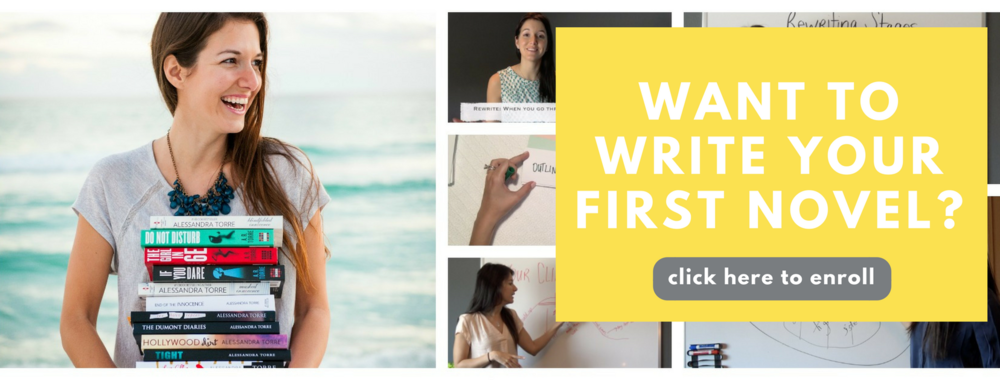4 Facts about Facebook Ads
Do Facebook ads really work to sell books? Ask five authors and you'll get five different answers:
"They work for some authors, but not me."
"I have no idea, they are too confusing."
"They are my primary source of income and how I'm succeeding."
"I've used Facebook ads at launch but that's it."
"What's a Facebook ad?"
Which answer fits you? At different points in my career, I've given every single one of these responses.
I've learned a lot, and here are my some 100% TRUE statements about Facebook ads:
1. You can't sell a dead book. If your book is unmarketable and unappealing, it won't do well with Facebook ads.
2. You have to know what you're doing. If you don't understand how to build and target an ad properly, it won't succeed.
3. You can lose a lot of money in ads if you don't know what you're doing.
4. Ads can push books that are 3, 4, or 10 years old. It's never too late to revive a book and get it into readers' hands.
Skye Warren is a New York Times bestselling author of dangerous romance. She started publishing in late 2011, and a few years later, after putting out more books and working on marketing, she was still struggling to make the mortgage payment every month.
Then she discovered Facebook ads.
They changed her business. And they changed her life, which is why she loves to talk about them. It’s her goal to help authors sell more of the books they work so hard to write.
I asked her for a specific example of this, and she shared a case study of an ad she ran just a few weeks ago…
Skye said:
"There are a few things I love about this particular example. For one thing, it’s not my best performing ad. Through intense iteration and packaging improvements, I’ve sometimes gotten 10X my spend. But I wouldn’t say that’s typical. Not for me or for other authors.
Instead my goal is usually to double my money--and then make improvements to go beyond that. I think it’s a great first goal for someone who’s still trying to make Facebook ads work for them. This case study shows how that would look.
There are lots of ways to measure the performance of an ad. Cost per click and landing pages and affiliate codes, but the most effective and comprehensive way is looking at the sales data.
Here you can see the graph that shows income for this series on Amazon…
Guess when I started running my Facebook ad campaign? February 19th.
The Pawn is book one in this series. It’s also a permafree title. If you were looking at the graph of downloads there’s a very clear increase starting on the day the ad begins, but the income in the entire series takes a couple days to get up there.
How much of a profit did this make?
Well, I spent $100 a day on this ad. On Amazon, the series was averaging $65 a day before I kicked off the campaign. And it averaged $240 after that.
On Apple Books, the series averaged $30 a day before the campaign. And $130 after. Other stories saw a similar but smaller rise in sales.
So that’s more than doubling my money for this ad.
Sometimes authors will tell me they don’t have time to spend on Facebook ads. And I understand there’s a learning curve. Your time is valuable. That’s worth something, but it’s also important to note that I did not spend long on this ad set. Actually it was restarting a campaign that’s worked for me before, so it quite literally took me five minutes to kick off.
I don’t say this to brag. I say this because I know you can do it, too. And I want that for you. Not only because it feels amazing to have readers love your books. Or because it’s great to make money from our art. I want that because of how powerful financial security is in this world.
And here’s the best part…
I turned off the ad on March 22nd. You can see the slight dip in sales before the Amazon algorithms and visibility kicked in to keep the series up. This means the ROI is actually higher because it continued to earn even after the ad was off. Though sales dropped on other platforms once the ad was turned off.
There are residual benefits from running Facebook ads.
Some readers will binge your entire catalog. I only measured through the fifth book. So I could have gotten more royalties due to this ad. This also doesn’t count the increase in audiobook sales due to this ad. (Unfortunately, ACX reports leave something to be desired.)
I also could have gotten Facebook likes and newsletter signups and lifelong fans… all of those things are important and good. But it’s the clear dollar amount increase that makes Facebook ads so valuable to authors. We spend time on Instagram and TikTok and writing bonus scenes. We hope that those things are finding us readers, but we don’t always know for sure.
With Facebook ads we know for sure.
I hope you found useful nuggets in this case study! It’s always a little scary for me to put my real data out there in the world, but I believe that transparency helps all of us. For me the best way to learn is to see what’s working and try it for myself."
Skye has a course on Facebook Ads that she offers once a year. If you’d like to be notified when her next course launches, complete this form.









